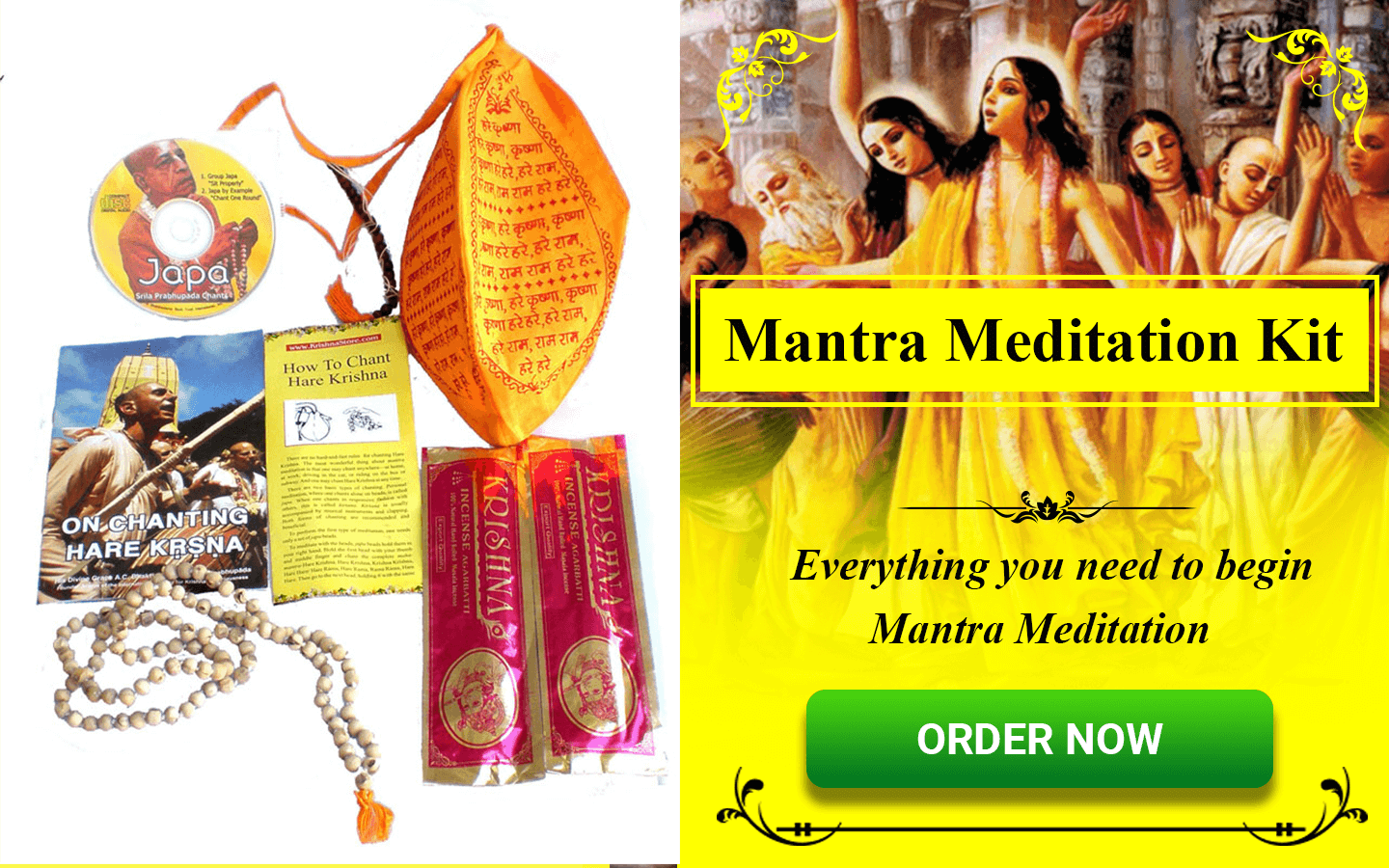Chapter 8: Attaining the Supreme
Bg 8.11
TEXT 11
yad aksaram veda-vido vadanti
visanti yad yatayo vita-ragah
yad icchanto brahmacaryam caranti
tat te padam sangrahena pravaksye
visanti yad yatayo vita-ragah
yad icchanto brahmacaryam caranti
tat te padam sangrahena pravaksye
SYNONYMS
yat—that which; aksaram—inexhaustible; veda-vidah—a person conversant with the Vedas; vadanti—say; visanti—enters; yat—in which; yatayah—great sages; vita-ragah—in the renounced order of life; yat—that which; icchantah—desiring; brahmacaryam—celibacy; caranti—practices; tat—that; te—unto you; padam—situation; sangrahena—in summary; pravaksye—I shall explain.
TRANSLATION
Persons learned in the Vedas, who utter omkara and who are great sages in the renounced order, enter into Brahman. Desiring such perfection, one practices celibacy. I shall now explain to you this process by which one may attain salvation.
PURPORT
Lord Krsna explains that Brahman, although one without a second, has different manifestations and features. For the impersonalists, the syllable om is identical with Brahman. Krsna here explains the impersonal Brahman in which the renounced order of sages enter.
In the Vedic system of knowledge, students, from the very beginning, are taught to vibrate om and learn of the ultimate impersonal Brahman by living with the spiritual master in complete celibacy. In this way they realize two of Brahman's features. This practice is very essential for the student's advancement in spiritual life, but at the moment such brahmacari (unmarried celibate) life is not at all possible. The social construction of the world has changed so much that there is no possibility of one's practicing celibacy from the beginning of student life. Throughout the world there are many institutions for different departments of knowledge, but there is no recognized institution where students can be educated in the brahmacari principles. Unless one practices celibacy, advancement in spiritual life is very difficult. Therefore Lord Caitanya has announced, according to the scriptural injunctions for this age of Kali, that no process of realizing the Supreme is possible except the chanting of the holy name of Lord Krsna: Hare Krsna, Hare Krsna, Krsna Krsna, Hare Hare, Hare Rama, Hare Rama, Rama Rama, Hare Hare.
Copyright (c) 1972 by His Divine Grace A.C. Bhaktivedanta Swami Prabhupada











